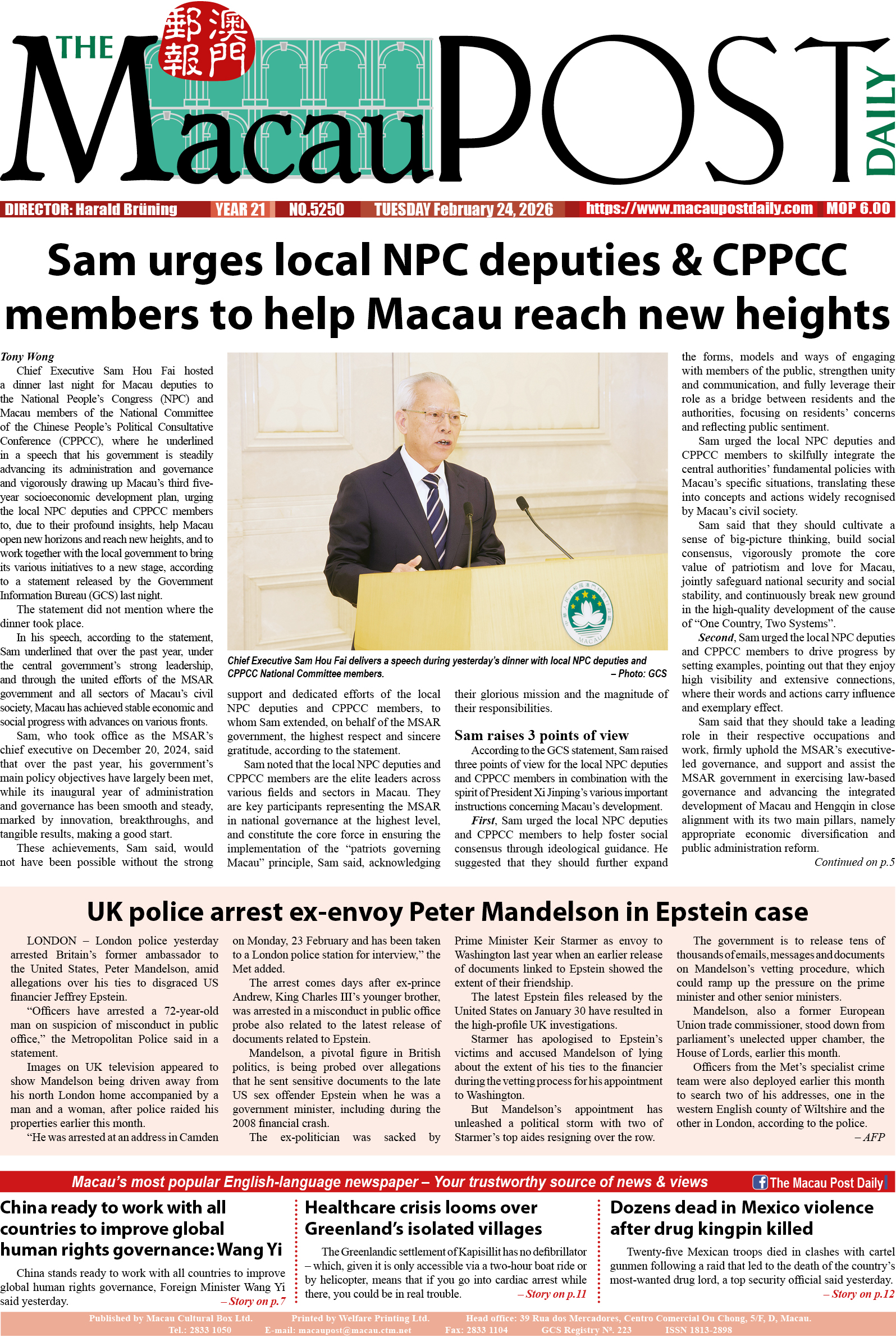Premier Li Keqiang said in Macau yesterday that mainland China’s debt risks are generally controllable and that he’s confident it can achieve its economic goals this year with growth in a reasonable range.
The economy has exceeded expectation and is looking more positive in the third quarter, though it still faces downward pressure, Li said in remarks on the sidelines of the 5th Ministerial Conference of the Forum for Economic and Trade Co-operation between China and Portuguese-speaking Countries.
The mainland will lower its relatively high leverage ratio in the non-finance sector, Li said a day after several agencies released plans to tackle excessive debt. He added that he’s confident that no systemic financial risk will occur.
“Growth momentum in the first half continued into the third quarter, with some positive signs,” Li said. “There’s been some discussion of risks related to [mainland] China’s debt problem and property market. I think we should take an objective, comprehensive attitude toward the issue. China’s debt risks are generally in control.”
Li projected confidence in the world’s second-largest economy before the October 19 release of the third-quarter gross domestic product (GDP) data. Growth continued to hold up with a third straight 6.7 percent quarterly expansion, according to economists surveyed by Bloomberg.
Other recent data showed manufacturing at the best level in almost two years while new credit, industrial output, fixed-asset investment and retail sales have also picked up.
More than 10 million new jobs were created in the first three quarters of this year as the urban surveyed jobless rate fell below 5 percent in September, Li said.
The mainland’s overall leverage ratio isn’t high, Li said a day after policy makers signaled they’re stepping up their fight against excessive borrowing. The State Council issued new guidelines on Monday for reducing corporate debt and said the government won’t bear the final responsibility for borrowing by companies.
Meanwhile, financial regulators plan to further tighten control on funds flowing into the property market in violation of current rules, according to sources familiar with the matter. The People’s Bank of China (central bank) and the central government’s banking and securities regulators aim to tighten control on speculative real-estate investments and money involved in land transactions, said the sources, who asked not to be identified because the information isn’t public.
Meanwhile, Beijing backs a yuan clearing center in Macau, among other supportive measures for the city, the People’s Daily reported yesterday, citing Li
The premier also announced other support measures including for a global tourism economy forum in Macau, developing new conventions and exhibitions, and to ease restrictions by year-end for Macau-licensed vehicles accessing Hengqin Island, the newspaper reported.
– Bloomberg







